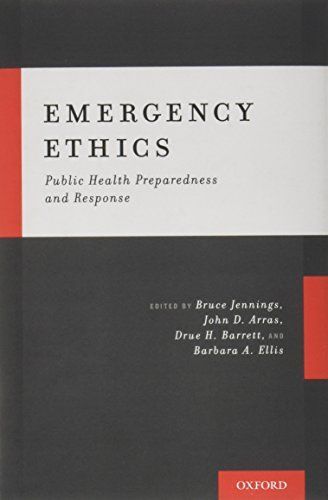
Emergency Ethics Public Health Preparedness and Response
Emergency Ethics brings together leading scholars in the fields of public health ethics and bioethics to discuss disaster or emergency ethics and ethical aspects of preparedness and response with specific application to public health policy and practice. The book fills a gap in the existing public health ethics literature by providing a comprehensive ethical conception of emergency preparedness as a distinctive form of civic "practice" brought about by the interrelationships and coordination of many groups, disciplines, and interests and drawing on numerous bodies of knowledge and expertise. It addresses particular aspects of preparedness and response plans, particular decisions that planners and communities have to make, decisions that require balancing many diverse and sometimes conflicting values and identifying and applying a framework of basic ethical principles for preparedness planning, emergency response, and post-disaster recovery. It also explores the relationship between emergency preparedness to other facets of public health practice. The book begins with a broad and synthetic overview of emergency ethics that addresses the central components and ethically significant issues arising in public health preparedness planning, disaster response, and recovery. Following that overview are five chapters that in a philosophically innovative and detailed way delve deeply into important and problematic issues in emergency planning and response, including the allocation of scarce resources, conducting ethical research in the context of public health emergencies, the obligations of public health professionals, communication and engagement with the public, and special moral obligations surrounding vulnerable populations.